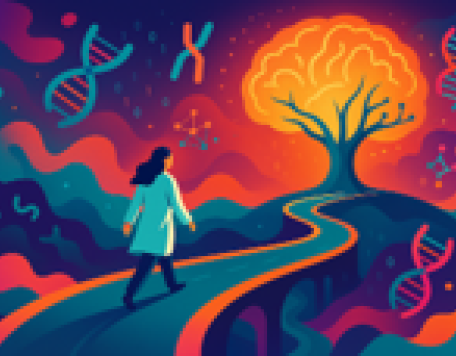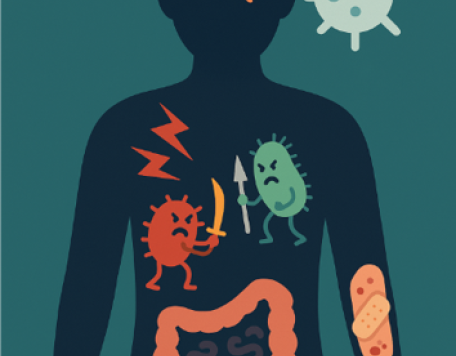© Pint of Science, 2025. All rights reserved.
Depression is the largest contributor to years of life lost due to disability worldwide. Tonight's speakers discuss how their innovative work is challenging this statistic.
Understanding self-harm
Dr Martina Di Simplicio
(Clinical Senior Lecturer in Psychiatry)
The rates of self-harm are higher in the UK than in any other European country. Most young people who self-harm will only do it occasionally, but for others it can be very difficult to stop even when they no longer want to harm themselves. How can we better understand the experiences that put some young people at greater risk of repeating self-harm? What is the impact of different ways of thinking, for example thinking in vivid and compelling mental images, and can these mental images be used as tools for therapy?
Treatment-resistant depression: are psychedelics the answer?
Taylor Lyons
(PhD Student, Psychedelic Research Group)
Depression, a condition associated with enhanced pessimism, is a major contributor to the global disease burden. A key feature of depression is that patients expect the future to be bleak and anticipate poor outcomes when facing life events of unknown emotional impact. Interestingly, psilocybin—a naturally occurring psychedelic derived from mushrooms—increases optimism, psychological well-being, trait openness and life satisfaction in an enduring way after a single dose. Can psilocybin correct pessimism biases in treatment-resistant depression, enabling a more positive and accurate outlook?
Map data © OpenStreetMap contributors.
Other The Bedford events
2025-05-19
Hacking cancer: Reprogramming the Immune system and decoding cancer therapies
The Bedford
77 Bedford Hill, London, SW12 9HD, United Kingdom
2025-05-20
Gut Feeling: How What We Eat Shapes Health, Culture, and Community
The Bedford
77 Bedford Hill, London, SW12 9HD, United Kingdom





